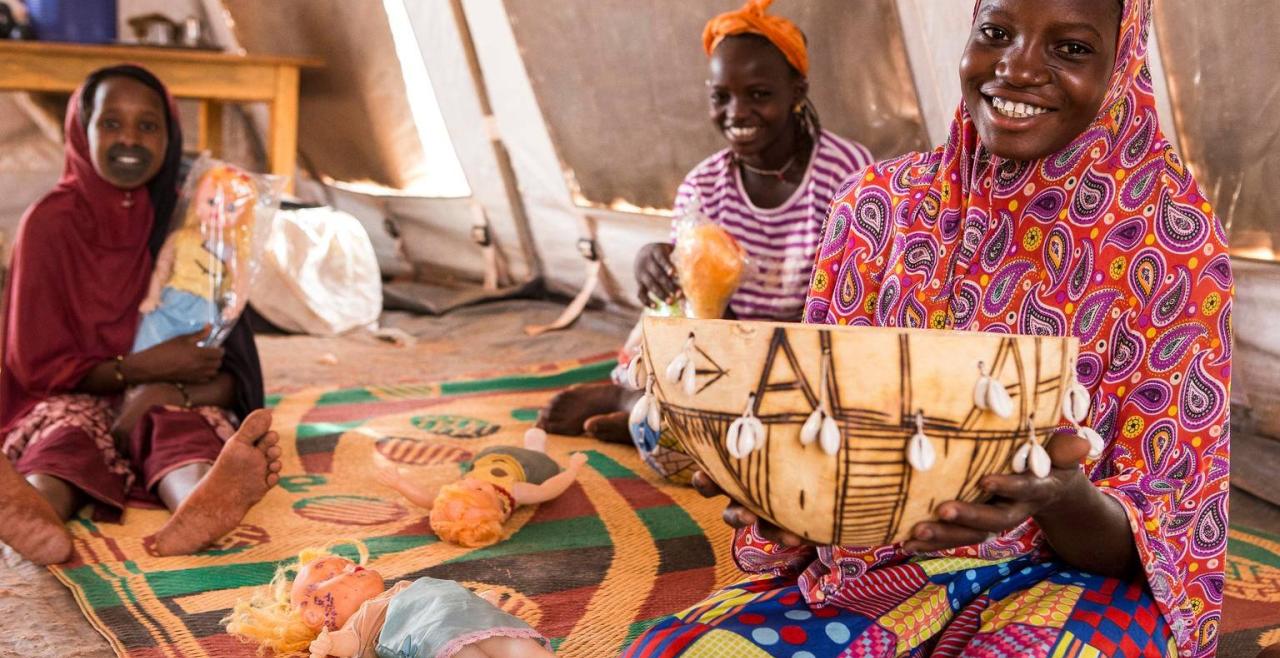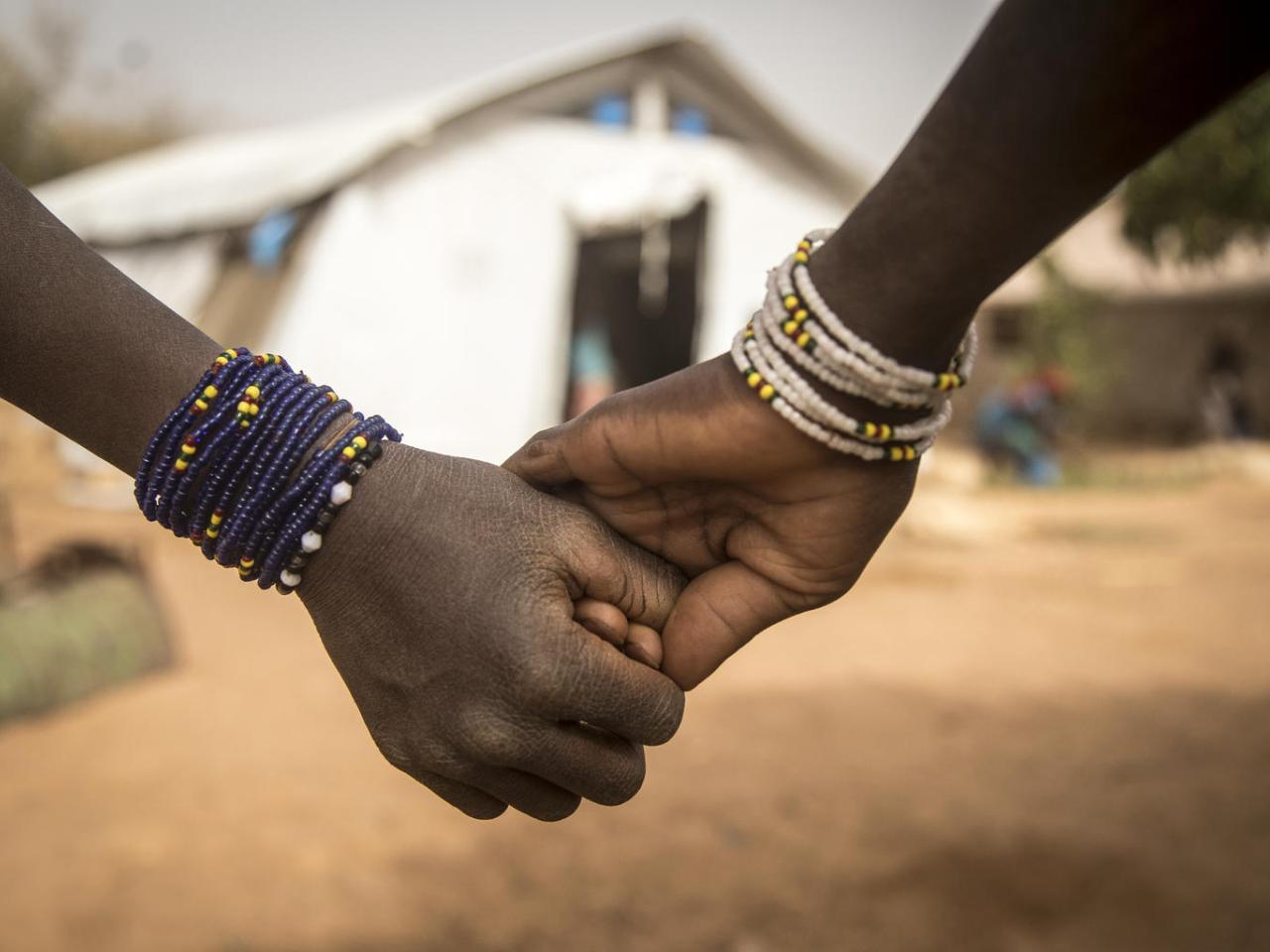In Mali, religious leaders unite to support the rights of women and girls

BAMAKO, Mali – The heads of Mali’s two main monotheistic religions, Islam and Christianity, have united to spread the message that every girl and woman in entitled to a life free from violence. President of the High Islamic Council of Mali, Cherif Madani Ousmane Haidara and Representative of the Episcopal Conference of Mali, Father Ferdinand Coulibaly, appeared in a series of Spotlight-supported television and radio messages denouncing violence against women.
The messages are particularly important during the COVID-19 pandemic, when rates of violence, child marriage and FGM are spiking globally. Even before the pandemic, more than 35 per cent of women in Mali experienced violence, while 71 per cent were married before the age of 18, according to UNICEF.
“Many of the Prophet's hadiths are about respect for women... God himself takes care of anyone who protects women." - Cherif Madani Ousmane Haidara
“Many of the Prophet's hadiths are about respect for women,” the imam said in his message. "God himself takes care of anyone who protects women."
Father Coulibaly referenced the teachings of the Bible to support respectful relationships, saying, "Women are not slaves, not goods. Let us take care of women, treat them as we treat ourselves and love them as we love ourselves. Let's do to others as we would have them do to us."
He also recalled an adage in Bambara, Mali’s most widely spoken language. "One soul may be older than another, one force may be greater than another, but no soul is superior or better than another.”
The support of high-profile faith leaders is deeply important in a country where 95 per cent of the population identifies as Muslim and a futher 3 per cent is Christian.
The campaign ran for two months, during which time the television message was viewed 40,878,000 times and the radio message heard 4,663,300 times. A total of 346,680 people were reached by the social media campaign.
Most importantly, the messages appear to have encouraged those experiencing violence to seek help.
"Women are not slaves, not goods. Let us take care of women, treat them as we treat ourselves.” - Father Ferdinand Coulibaly
During the campaign and in the weeks after, the number of people visiting Bamako’s one-stop centre increased by more than 65 per cent. One-stop centres are locations that allow women and girls who experience violence to access health, justice and support services in a single visit.
“This campaign was very important and fruitful,” said Police Sergeant Dembélé, who belongs to the judiciary unit of the Bamako one-stop centre. “It informed the general public about the existence of the one-stop centre and encouraged survivors to get in touch with us to assist them. We need to build on this kind of public awareness so that we can get closer to our goal of ending violence against girls and women.”
The Spotlight Initiative is working with more than 300 religious leaders across Mali to help change the norms and attitudes that perpetuate violence, and to make survivors more aware of the services that are available.
Spotlight Initiative currently supports 10 one-stop centres throughout Mali, which have served hundreds of survivors since 2018.
By Mamadou Bakary Traore and Diariatou Diakite

